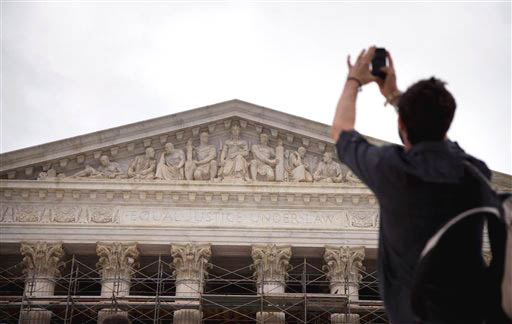Whether or not you agree with morality of abortion, House Bill 2 violates the undue burden standard, and cannot be allowed to stand. HB 2, passed in the summer of 2013, is a broad group of restrictions on abortion, including a ban for pregnancies past 20 weeks — no exceptions for rape — and stringent requirements for physicians and clinics who perform abortions.
The controversial issue of regulating abortion has a longstanding history that is still in flux today. The first precedent was Roe v. Wade, which determined that a woman’s decision to terminate her pregnancy is a “liberty” protected by the due process clause of the 14th Amendment.
In 1992, Planned Parenthood v. Casey upheld the decision made in Roe v. Wade and added the “undue burden” test. This test found illegal laws whose “purpose or effect is to place substantial obstacles in the path of a woman seeking an abortion before the fetus attains viability.”
The most current case, Whole Woman’s Health v. Hellerstedt, will reexamine the limits on states’ ability to regulate abortion in response to the overt attempt to deny women access to abortion. HB 2 attempts to disguise itself as a legitimate government action to protect women’s health, but it is now the Supreme Court of the United States’ job to reel in these overreaching restrictions.
The arguments in front of the Court center upon two clauses of HB 2 that put restrictions on physicians and clinics. The first requires that physicians have admitting privileges at a hospital within 30 miles of the facility. The second requires that all abortion facilities meet the standards of ambulatory surgical centers (ASCs), including facilities that only provide medical abortion.
The Texas Policy Evaluation Project has studied the effects of these two clauses. TxPEP found that since HB 2, there has been a sharp decline in both the number of physicians and facilities that provide abortion services.
TxPEP also found that the severe decline in the number of clinics means that there is no longer sufficient capacity to meet demand. Dr. Daniel Grossman, a TxPEP researcher, said that the closure of clinics across the state, brought on by HB 2, delays or prevents women seeking abortion.
Further, TxPEP found that there is “no evidence” that admitting privileges improve the safety of an abortion. Instead the requirement has limited the number of doctors and clinics that can offer the service.
“Some women we have interviewed report attempting to self-induce their abortion because their nearest clinic closed and they could not travel to the next nearest clinic. If the Supreme Court decides that HB 2 can fully go into effect, there will only be nine or 10 facilities providing abortion care in Texas, and we anticipate that all of these negative outcomes will worsen for women across the state,” Grossman said.
The state is not acting in the interest of promoting health, and this law obviously does “place substantial obstacles in the path of a woman seeking an abortion.” Solicitor General Donald W. Verrilli Jr. put it best when he suggested that HB 2 made abortion a right that “only really existed in theory and not in fact.”
MacLean is a advertising freshman from Austin. Follow her on Twitter @maclean_josie.





















